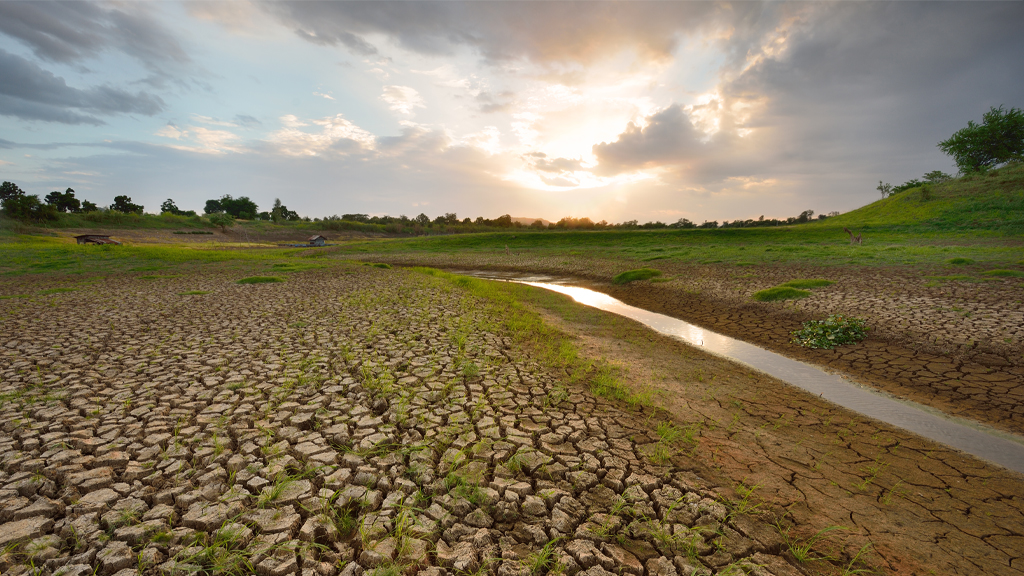Brief
The American Geophysical Union Steps It Up on Climate Science Education
Connected Science Learning May-June 2022 (Volume 4, Issue 3)
By Michael E. Wysession, Tanya Furman, Missy Holzer, Jacqueline Houghton, Cathryn A. Manduca, Stephanie Pfirman, Victor J. Ricchezza, and Vincent Tong

As newspaper headlines remind us on a daily basis, climate change—and its associated floods, droughts, extreme weather, and sea-level rise—is a challenge to humanity in ways that require a multi-pronged attack. This includes scientific research, engineering innovation, governmental policy, societal awareness, and both formal and informal education. To address this challenge, the American Geophysical Union (AGU), a leading facilitator of research in Earth and space science (ESS) with over 60,000 members, has responded to requests from educators for policy action and scientific resources by creating two resources, specifically: (1) a pair of position statements for use by educators concerning the importance of teaching about climate science, and (2) an open access collection of leading climate science articles, published in AGU journals.
At the end of 2021, AGU revised and updated its Position statement on teaching Earth and space science (AGU 2021a). This cites the importance of issues such as climate change and urges increased funding for all aspects of geoscience education, a focused attention to justice in decision-making, and a greater participation by Earth and space scientists in the educational process. As the position paper states, “The future success of our society requires us to make equitable and sustainable choices while considering the impact on low-income and minority populations around the globe.” The paper highlights the Next Generation Science Standards (NRC 2013) and the report it was based on, A Framework for K–12 Science Education (NRC 2011), as an international model of educational standards that balances ESS, life, and physical sciences. This position paper can be used by teachers in conversations with school boards and parents regarding the important role ESS occupies within the curriculum and the authority of the NGSS in defining learning outcomes.
Of particular challenge to educators is pushback to teaching of topics such as climate science and evolution, which are frequent targets of substantial and coordinated attacks of misinformation and disinformation. To help combat this, AGU, which already had a position statement on climate science (AGU 2019), has now also released a new Position statement on teaching about climate change and evolution (AGU 2021b). Similar to NSTA’s Position statement: The teaching of climate science (NSTA 2018; Workosky 2018), AGU’s new statement calls for action to “counter politicization and misinformation …,” “advocate for policies, opportunities, and resources that enable education on climate change and evolution, particularly those that engage with and involve under-resourced communities,” “…promote education on equitable options for mitigation and adaptation,” and “provide for effective professional development of educators with respect to climate change and evolution.”
In a separate action, the publications branch of AGU addressed the need for open access to science concerning climate change. “The planet is in crisis!” begins an AGU editorial that was coauthored by the 23 editors-in-chief of AGU’s scientific journals (Filippelli et al. 2021) and affirms that “human influence is causing widespread, rapid, and intensifying changes in our weather and climate that are affecting every region on Earth in multiple ways” and makes “a plea for collective action: we must make the switch to a green economy, put a just and effective price on carbon now, and consider a portfolio of other equitable public investments in climate solutions.”
The editorial stresses that education and community partnership are critical to the success of this mission, announcing (1) a new publication forum for community science in partnership with associations outside the geosciences and (2) the provision of a new resource for educators called Global Climate Crisis: From Research to Solutions (AGU 2021c). This free and open access collection contains some of the most important research on climate change published in AGU’s journals, selected by the editors-in-chief, for educators both in-school and out-of-school to incorporate into curricular materials (Wooden et al. 2021).
Mitigating the hazards of climate change at a sufficient level and in a timely manner will require engagement and determination on the part of both scientific and educational organizations. These hazards have inequitable consequences, impacting most those communities with the least voice. AGU and NSTA can be synergistic partners in this endeavor, providing to educators in formal and informal settings needed resources (such as the ones presented here) to address the current challenges through joint community efforts that help move us toward climate justice and equity.
Michael E. Wysession (mwysession@wustl.edu) is a professor at Washington University in St Louis in St Louis, Missouri. Tanya Furman is a research professor at Penn State - Main Campus in University Park, Pennsylvania. Missy Holzer is a science standards specialist at Great Minds PBC - PhD Science in Somerset, New Jersey. Jacqueline Houghton is an associate professor at the University of Leeds in Leeds, United Kingdom of Great Britain and Northern Ireland. Cathryn A. Manduca is founding director of the Science Education Resource Center at Carleton College in Northfield, Minnesota. Stephanie Pfirman is a professor at Arizona State University in Tempe, Arizona. Victor J. Ricchezza is an assistant professor at Georgia State University Perimeter College in Clarkston, Georgia. Vincent Tong is an associate professor at Northumbria University at Newcastle upon Tyne, Tyne and Wear, United Kingdom of Great Britain and Northern Ireland.
citation: Wysession, M.E., T. Furman, M. Holzer, J. Houghton, C.A. Manduca, S. Pfirman, V.J. Ricchezza, and V. Tong. 2022. The American Geophysical Union steps it up on climate science education. Connected Science Learning 4 (3). https://www.nsta.org/connected-science-learning/connected-science-learning-may-june-2022/american-geophysical-union
Climate Change Earth & Space Science Environmental Science Instructional Materials Literacy STEM Informal Education

